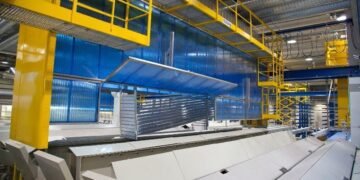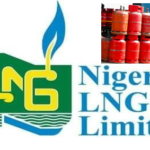In August 2020, the Central Bank of Nigeria released the framework for its National Gas Expansion Programme (NGEP) which was introduced to make Compressed Natural Gas (CNG) the fuel of choice for transportation and Liquified Petroleum Gas (LPG), the fuel of choice for domestic cooking.
The bank argued that with a proven gas reserves of 188 trillion cubic feet (tcf), the natural gas industry can be a driver for the diversification of the economy through domestic commercial utilization.
- Read also;
- Nigerian Stock Exchange weekly review: All-Share index drops by 0.08% in a week dominated by Price Adjustments
- Just in: WTO DG battle – Okonjo-Iweala retained, 3 candidates evicted
Low level of investment in the industry has resulted in the minimal production and utilization of CNG and LPG as clean alternative source of domestic energy in the country. It is in an effort to address this low level investment that the CBN introduced the N250 billion intervention facility.
Large-scale projects under the intervention will be financed under the Power and Airlines Intervention Fund (PAIF), in line with existing guidelines regulating the PAIF, while small-scale operators and retail distributors will be financed by the NIRSAL Microfinance Bank (NMFB) and / or any other Participating Financial Institution (PFI) under the Agribusiness/Small and Medium and Medium Enterprises Investment Scheme (AgSMEIS).
The initiative will be implemented in collaboration with the Ministry of Petroleum Resources (MPR).
The framework seen by Investogist outlines the operational modalities for the intervention.
OBJECTIVES: The objectives of the Facility include;
- Improved access to finance for private sector investments in the domestic gas value chain.
- Stimulate investments in the development of infrastructure to optimize the domestic gas resources for economic development.
- Fast-track the adoption of CNG as the fuel of choice for transportation and power generation, as well as LPG as the fuel of choice for domestic cooking, transportation and captive power.
- Fact-track the development of gas-based industries particularly petrochemical (fertilizer, methanol, etc) to support large industries, such as agriculture, textile, and related industries.
- Provide leverage for additional private sector investments in the domestic gas market.
- Boost employment across the country.
ELIGIBLE ACTIVITIES: Eligible activities under the intervention shall include;
- Establishment of gas processing plants and small-scale petrochemical plants.
- Establishment of gas cylinder manufacturing plants.
- Establishment of L-CNG regasification modular systems.
- Establishment of auto gas conversion kits or components manufacturing plants.
- Establishment of CNG primary and secondary compression stations.
- Establishment and manufacturing of LPG retail skid tanks and refilling equipment.
- Development/enhancement of auto gas transportation systems, conversion and distribution infrastructure.
- Enhancement of domestic cylinder production and distribution by cylinder manufacturing plants and LPG wholesale outlets.
- Establishment/expansion of micro distribution outlets and service centres for LPG sales, domestic cylinder injection and exchange; and
- Any other mid to downstream gas value chain related activity recommended by the Ministry of Petroleum Resources (MPR).
FUNDING
- Aggregators, manufacturers, processors, wholesale distributors and related activities shall be funded under the Power and Airline Intervention Fund (PAIF).
- Small and medium-scale enterprises (SMEs) and retail distributors shall be funded by NIRSAL Microfinance Bank (NMFB) under AgSMEIS.
Manufacturers, Processors, Wholesale Distributors etc. term loan shall be determined on the activity and shall not exceed N10 billion per obligor and the company will have a maximum working capital of N500 million per obligor.
Small & Medium Enterprises (SMEs) and Retail Distributors term loan shall be determined based on the activity and shall not exceed N50 million per obligor, and its working capital shall be a maximum of N5 million.
Interest rate under the intervention shall be at not more than 5.0% p.a. (all inclusive) up to 28th February 2021, thereafter, interest on the facility shall revert to 9% p.a. (all inclusive) effective from 1st March 2021.
For Manufacturers, Processors, Wholesale Distributors, etc;
- Term loans shall have a maximum tenor of 10 years (not exceeding 31st December 2030) depending on the complexity of the project. Each project tenor shall be determined in relation to its cash flow and life of the underlying collateral.
- Term loans shall be allowed maximum of two years moratorium on principal repayment only.
- Working capital facility of one (1) year with a maximum roll over of not more than twice, subject to prior approval.
For Small & Medium Enterprises (SMEs) and Retail Distributors;
- Term loans shall have a maximum tenor of 5 years (not exceeding 31st December, 2030). Each project tenor shall be determined in relation to its cash flow and life of the underlying collateral.
- Term loans shall be allowed a maximum of two years moratorium on principal repayment only.
- Working capital facility of one (1) year with a maximum roll over of not more than twice and subject to prior approval.
The repayment on funds taken from Deposit Money Banks shall be by monthly interests and shall be amortised and transferred to CBN monthly. Repayment on funds from NIRSAL Microfinance Bank (NMFB) shall also be by monthly interests payable after the moratorium period.
All Deposit Money Banks and the NMFB will be eligible as PBs under the CBN facility.
HOW TO APPLY
For Manufacturers, Processors, Wholesale Distributors, etc;
- Eligible applicant or sponsor shall submit applications through any Participating Banks (PBs) to the CBN.
- The PB shall carry out due diligence on the application based on business and credit considerations.
- Each request must be accompanied with documents as may be required by the PB under PAIF, including relevant endorsements and permits from the Ministry of Petroleum Resources (MPR) for the project.
- Upon approval by appropriate Credit Committee, the PB shall forward approved application under the intervention to the CBN.
- The Central Bank of Nigeria shall conduct internal review of the application to ensure compliance with the guidelines. All applications that meet the specified requirements under the intervention shall be processed and the PB notified of the status of the request. (Note: The CBN reserves the right to reject any application from any lending bank that does not meet the requirements of this Guidelines).
- Upon approval, the CBN shall release the approved sum to the PB according to mutually agreed disbursement schedule tied to specific milestones; and
- The PB shall, within 5 working days, disburse the approved sum to the enterprise.
For Small & Medium Enterprises (SMEs) and Retail Distributors;
- Eligible SMEs shall approach NMFB with bankable proposals.
- The NMFB shall carry out due diligence on applications based on business and credit considerations.
- Applications that meet disbursement criteria shall be forwarded to CBN for review and release of funds to NMFB.
- The Central Bank of Nigeria shall conduct internal review of applications to ensure that laid down criteria are met. All applications that meet the specified requirements under the interventions shall be processed and the NMFB notified of the status of the request.
(Note: The CBN reserves the right to reject any application from any lending bank that does not meet the requirements of this Guidelines); and - Upon approval, the CBN shall release the approved sum to NMFB for disbursement to the obligor according to the disbursement schedule not later than 5 working days after receipt of funds from the CBN.
For other information like collateral, verification/monitoring of projects, and responsibilities of stakeholders, click here.
Written by;
Nnamdi M.






















































